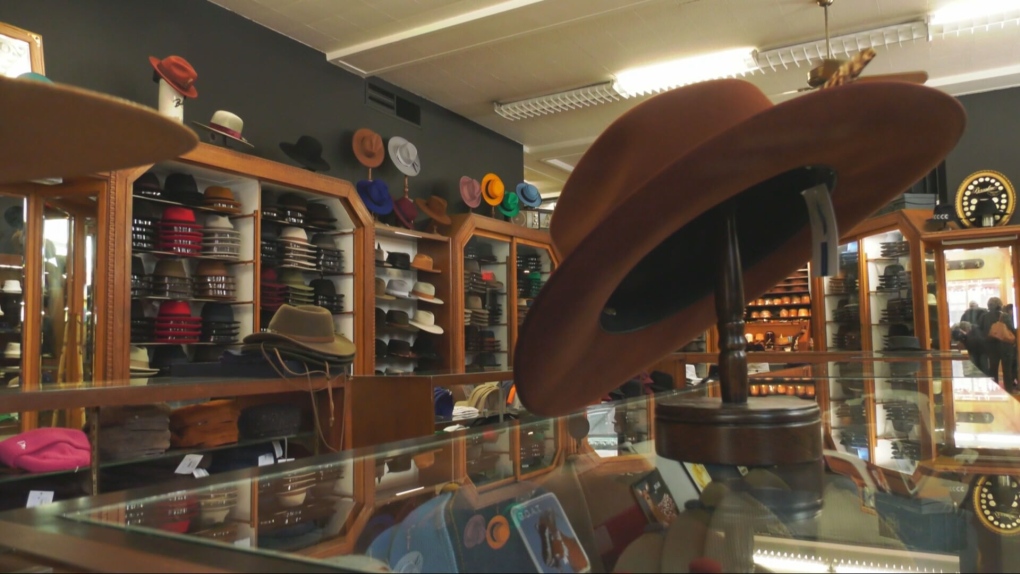


Since 1932, Montreal’s Henri Henri has been filled to the brim with every possible kind of hat, from newsboy caps to feathered fedoras.
Until 16 years ago, Francis Bissonnette-Gilker didn’t know much about hats, but during a resume run in the city’s Latin Quarter, a friend dared him to apply to Henri Henri.
“I guess they liked the cut of my jib since they told me to get a suit and come back tomorrow,” he said.
Now, he has an encyclopedic knowledge of hats and uses it to help customers find their perfect match.
“We also look at what people like, what they wear and we try to find the best style, the best balance,” he said.
The store was founded by hat salesmen Jean-Maurice Lefebvre and Honorius Henri in 1932.
At first they only specialized in a few brands and styles, but over the years their collection and clientele expanded.
Today, many celebrities, musicians and hockey players stop by Henri Henri when they’re in Montreal.
Shows like Yellowstone and Peaky Blinders have also created more hat interest in young people.
But it’s also the old-school glamour that attracts them, according Bissonnette-Gilker.
“They like the fact that we have the same furniture for 90 years and that we have the same cash register,” he said. “They love that we still serve them kind of old school.”
The hats aren’t cheap, but they are made to last.
The store also offers cleaning, reshaping and repair services.
Sylvain Labbe is one of the few hatters or “chapeliers” in the country.
Trained in France, and having spent 18 years with Cirque de Soleil, he does all his work by hand.
“It’s an ancient art,” he said. “The tools and methods haven’t changed much.”
The throughline at Henri Henri is tradition.
The business has always been family fun, and today, father and son duo Joel and Yannig Plunier are at the helm.
Lately, Joel has been working on taking Henri Henri to a wider audience.
“We’re putting a lot of energy in our e-commerce,” he said. “that’s the future.”
Their stockrooms are filled with the latest bowlers, porkpies, Stetsons and even kangaroo-leather caps, but the most prized is a Borsalino panama hat.
Each one takes three months to weave and costs $1,400.
“They are more than just fashion accessories,” Bissonnette-Gilker said. “Yes, they look good. But they also serve a purpose, especially if you’re balding.”